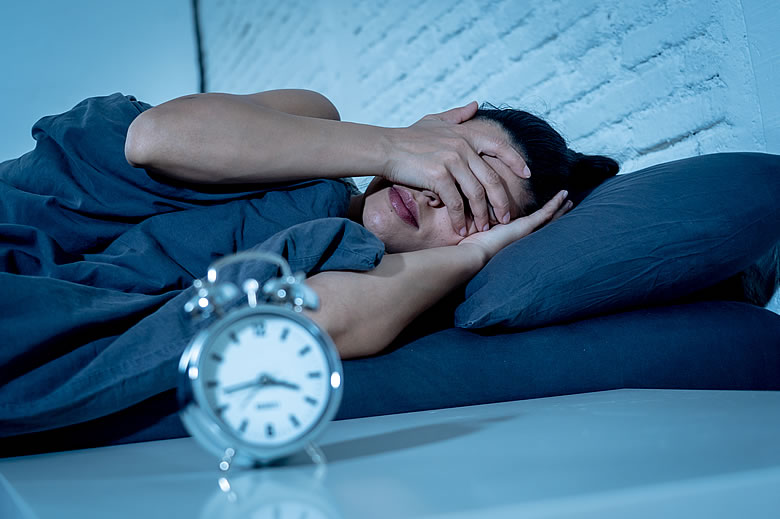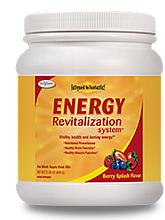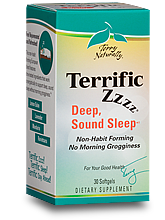3 Reasons You're Not Sleeping Well

Disordered sleep is a hallmark of fibromyalgia. There are many factors that contribute to this. But first some background.
Before light bulbs were invented 140 years ago, people in the U.S. averaged nine hours sleep at night. When was the last time you slept that well?
Getting deep sleep is critical not only for restoring energy, but also for staying young, keeping your weight under control, having proper tissue repair so you're not in pain, and even for optimizing your immune function. Unfortunately, most of us aren't getting enough of it. This problem is dramatically amplified in fibromyalgia!
And it's not just about the amount of time you sleep, but how much of that is restorative sleep, a sleep phase in which your hypothalamus (an almond-sized control center in your brain) causes your body to repair itself. Deep sleep is the phase in which restorative sleep happens. But if you keep waking up, you're won't reach deep sleep and will miss out on your needed restorative sleep. This will leave you not only tired, but in pain.
Let's discuss three main causes of poor sleep, and how to resolve them.
1. Inadequate Energy Production
The hypothalamic sleep center uses more energy for its size than any other area in your body. So if your body isn't producing enough energy, or it's excessively being stressed, your sleep can suffer. This is the key cause of the sleep disorder in fibromyalgia. Consider these ways to improve your energy:
- Take a good daily multivitamin. The average American diet has lost over 50% of its vitamins and minerals through modern food processing. Multivitamins can help compensate for this, though sadly most multivitamins don't do a very good job of promoting energy production. Magnesium (150-200 mg a day) and B vitamins (e.g., a 50 mg B complex) are particularly critical for sleep. Taking a good high-potency multivitamin each morning, such as Clinical Essentials™ or the Energy Revitalization System™ vitamin powder, can easily ensure that this is properly taken care of.
- Optimize your thyroid function. The majority of people who need thyroid hormone aren't aware of it because it doesn't show up in their "normal" blood tests. If you have any two of the symptoms of fatigue, achiness, weight gain, cold intolerance, or constipation, it's worth taking a trial of thyroid hormone to see if it helps how you feel overall, and to see if it helps you sleep better.
- Cut excessive stresses out of your life, especially near bedtime. For example, problem solving near bedtime or watching the news can hike your stress (especially the news, which too often these days chases ratings by trying to either scare us all to death or make us hate each other).
2. Adrenaline Release and Night Sweats During Sleep
You can tell this is happening if you experience night sweats. Here are the key four causes:
- Estrogen deficiency (women) or testosterone deficiency (men). This is especially important to address if you're between 48 and 55 years of age. Find a doctor who'll prescribe bioidentical hormones for you. Don't rely on blood tests for this, as blood tests won't usually show this abnormality until you've been hormone deficient for 5 to 12 years.
- Nighttime acid reflux. Do you get heartburn while sleeping? If so, take half a teaspoon of Arm and Hammer baking soda dissolved in 4 ounces of water just before bedtime. This will neutralize your stomach acid. Important: You should avoid taking acid blockers as chronic use of them has been shown to increase the risk of dementia by 44% and premature death by 25%. If you need these, Zantac or Tagamet are safer. An excellent chewable antacid is Immediate Heartburn Relief™. This contains magnesium and vitamin D, which also helps pain overall.
- Candida or yeast overgrowth. Any infection can cause night sweats, but Candida is a particularly common chronic infection that is missed by most physicians. There's no test for this. But you should suspect it if in addition to night sweats you also have nasal or sinus congestion, or irritable bowel syndrome (gas, bloating, diarrhea or constipation).
- Drops in blood sugar while sleeping. This is most often triggered by fatigued adrenal stress handler glands. Diagnosis and treatment are easy. Simply eat a one-ounce protein snack at bedtime (such as one or two eggs) and avoid carbohydrates near bedtime to see if this helps.
3. Waking to Go to the Bathroom
While drinking one or two alcoholic drinks in the evening can often help you fall sleep, drinking more than that will likely set you up for a need to urinate in the middle of the night. Drinking any caffeine at night, of course, can have the same effect. As a general rule, you shouldn't drink anything excessively during the four hours leading up to bedtime. (Note: A simple tip that can also help is that when sitting around in the evening, try to use a foot stool or find some other comfortable position that keeps your legs elevated. That will help gravity drain them of fluids while you're still awake instead of after you lie down to sleep.)
But even if you avoid these mistakes, you might be someone who's still bothered by frequently needing to get up in the middle of the night for a bathroom break. If this is you, and you're a woman, taking an herbal supplement called SagaPro® at bedtime can help reduce your bladder urgency. If you're a man whose nighttime urination is triggered by prostate issues, taking saw palmetto can help (160 mg twice daily for about six weeks). For severe cases, especially in fibromyalgia, I will prescribe the medication DDAVP 0.1-0.4 milligrams at bedtime. This medication is the hormone that decreases urine production, and which is routinely low in fibromyalgia as part of the overall hormonal problems. Taken in the morning, this can also help orthostatic intolerance.
Many herbals can be dramatically beneficial for improving deep sleep. Two of my favorite mixes are the Revitalizing Sleep Formula and Terrific Zzzz™.
In the thousands of people I've helped to recover from fibromyalgia, we've been able to get good solid sleep in over 98%. Are you ready for a great night sleep?

Jacob Teitelbaum, M.D. is one of the world's leading integrative medical authorities on fibromyalgia and chronic fatigue. He is the lead author of eight research studies on their effective treatments, and has published numerous health & wellness books, including the bestseller on fibromyalgia From Fatigued to Fantastic! and The Fatigue and Fibromyalgia Solution. His newest book (June 10, 2024) is You Can Heal From Long COVID. Dr. Teitelbaum is one of the most frequently quoted fibromyalgia experts in the world and appears often as a guest on news and talk shows nationwide including Good Morning America, The Dr. Oz Show, Oprah & Friends, CNN, and Fox News Health.


